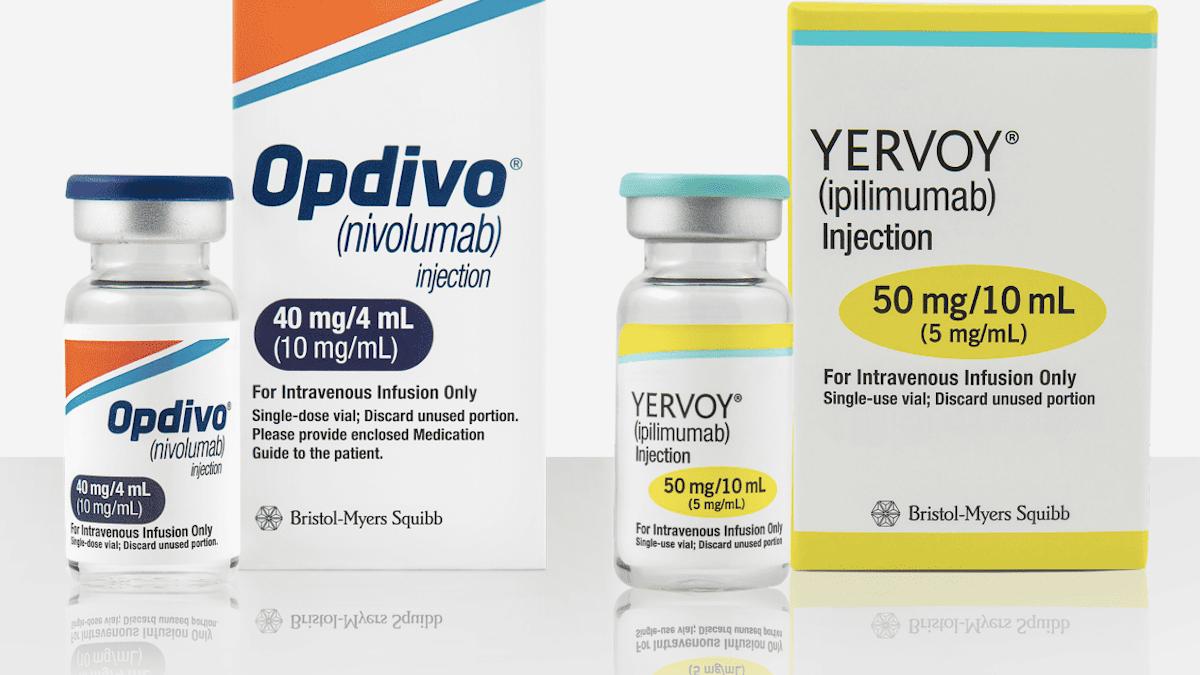BMS bags a double-quick colorectal cancer approval from FDA

The FDA has approved Bristol Myers Squibb's Opdivo and Yervoy as first-line therapy for patients with a particular form of colorectal cancer (CRC), providing an alternative to rival therapy Keytruda from MSD in the US.
Specifically, the new indication covers the use of PD-1 inhibitor Opdivo (nivolumab) with CTLA4 inhibitor Yervoy (ipilimumab) in patients aged 12 and over with previously untreated metastatic microsatellite instability-high (MSI-H) or mismatch repair deficient (dMMR) colorectal cancer that cannot be treated with surgery.
The decision – which also converts a 2018 FDA approval of Opdivo/Yervoy as a second-line choice after chemotherapy for this type of cancer into a full approval – has come in double-quick time, well ahead of the FDA's target decision date of 23rd June. The combination was also approved for previously untreated MSI-H/dMMR CRC in the EU and China towards the end of last year.
In the phase 3 CheckMate-8HW study, Opdivo/Yervoy reduced the risk of disease progression or death by 38% compared to Opdivo plus investigator's choice of chemotherapy.
After around four years of follow-up, more than half of patients taking Opdivo plus Yervoy were still alive with no disease progression, down from 79% at the two-year time point reported last year, with median progress-free survival (PFS) of just over 39 months.
Now, Opdivo/Yervoy offers an immunotherapy alternative to MSD's PD-1 inhibitor Keytruda (pembrolizumab), which was approved in 2020 as a first-line monotherapy for MSI-H/dMMR CRC on the strength of the KEYNOTE-177 trial and is now the standard of care for these patients.
That study revealed a 40% reduction in the risk of disease progression or death at two years, while after five years of follow-up the PFS rate was 34%, suggesting a possible efficacy edge for BMS'; regimen with the usual caveat of trying to compare trials with different protocols and patient populations.
CheckMate-8HW investigator Heinz-Josef Lenz of USC Norris Comprehensive Cancer Center in the US said the approval "has the potential to redefine traditional approaches of care" for patients with this form of cancer, which is aggressive and can be very difficult to treat.
One question for oncologists is whether BMS' dual immunotherapy data can convince them to choose the regimen over Keytruda for their treatment-naïve patients, given that Yervoy adds to the side-effect burden of treatment. There was a higher incidence of treatment-related adverse events (TRAEs) compared with Opdivo alone in CheckMate-8HW and a treatment discontinuation rate of 9% versus 4%, respectively.
"Colorectal cancer is the third most commonly diagnosed cancer and the second most common cause of cancer-related death for men and women combined in the US, and concerning trends show that incidence is increasing in people younger than 50," commented Nicole Sheahan, president of the Global Colon Cancer Association.
"Despite the prevalence of CRC, there remains a high unmet need, highlighting the urgency for additional treatment options," she added.












